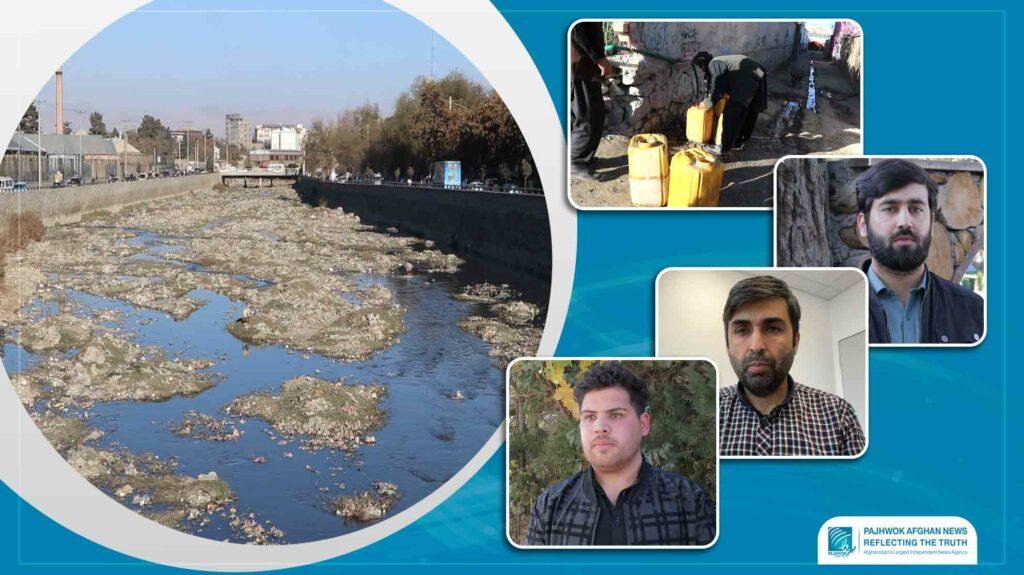KABUL (Pajhwok): Experts and researchers have called on the Islamic Emirate of Afghanistan (IEA) to make water management a top priority and seek international financial and technical assistance.
Officials from the Ministry of Energy and Water (MoEW) have highlighted several initiatives in surface water management, including the construction of over eight dams this year, three of which are now operational. Combat the impacts of climate change, which have exacerbated the depletion of groundwater.
Additionally, 355 check dams have been built across the country, and to address Kabul’s drinking water shortage, thousands of wells have been dug, with recycling systems implemented for major water consumers.
However, experts cautioned the water crisis, if not properly tackled, could spawn severe consequences.
Sayed Mohammad Sulaimankhel, an environmental and climate change expert, stressed both groundwater and surface water levels were in critical condition, with climate change exacerbating the crisis.
Irregular rainfall and snow patterns, alongside increased surface water pollution and floods, are further aggravating the situation.
Sulaimankhel urged IEA to take immediate action to recharge groundwater and implement effective water resource management strategies.
He suggested investments in water infrastructure, introducing programmes to conserve both surface and groundwater, creating water networks, imposing a ban on unregulated well drilling and the use of groundwater for agriculture.
If left unaddressed, water shortages could lead to drinking water scarcity, agricultural disruption, migration challenges and ultimately an economic and social crisis, he warned.
Mohammad Mustafa Ahmadzai, another expert, pointed out that while Afghanistan contributed minimally to global greenhouse gas emissions, it was one of the most affected countries.
He referred to the impacts of climate change — such as reduced rainfall, the melting of glaciers and falling groundwater levels — and recommended several measures to alleviate the crisis, including a ban on the drilling of deep wells, relocating soft drink manufacturing companies outside urban areas and restricting groundwater use for agriculture.
Ahmadzai called for international financial and technical support to help Afghanistan mitigate the effects of climate change. He urged delinking environmental issues from politics, as climate challenges transcend borders and affect all nations.
Environmental researcher Najibullah Sadid echoed the concerns, identifying both human factors and climate change as key drivers of groundwater depletion.
He cited inadequate water management, population growth in major cities and excessive groundwater use as contributing factors.
Sadid noted the increased affordability of solar panels for agriculture had led to unexpected floods and droughts, disrupting the seasonal water balance.
To address the crisis, Sadid advocated for limiting groundwater use to drinking and essential agricultural needs, such as greenhouse farming.
He also recommended restricting the drilling of deep wells and promoting the use of small dams, trenches, or wells for groundwater recharge.
Sadid stressed the need for sustained focus on surface water management, the construction of both large and small dams, and ensuring community participation in water management projects to foster a sense of ownership and responsibility for conserving water resources.
In response, MoEW spokesman Mutiullah Abid confirmed the ministry had made significant strides in surface water management this year, with the construction of eight dams. Three of the dams are operational and 355 check dams have been built nationwide.
He also said the ministry had implemented solutions to address Kabul’s drinking water shortage, including the excavation of thousands of infiltration wells and the introduction of water recycling systems for major consumers.
Abid shared that one of the MoEW’s major initiatives is the transfer of water from the Panjshir River to Kabul. Technical studies for this project have been completed, and the plan is awaiting approval from IEA leadership.
These concerns come as the National Environmental Protection Agency has warned that, due to climate change, 21 million people in Afghanistan are facing a drinking water crisis.
Recently, Deputy Prime Minister for Economic Affairs Mullah Abdul Ghani Baradar reiterated IEA’s strong commitment to addressing the country’s water management challenges.
sa/mud








GET IN TOUCH
NEWSLETTER
SUGGEST A STORY
PAJHWOK MOBILE APP